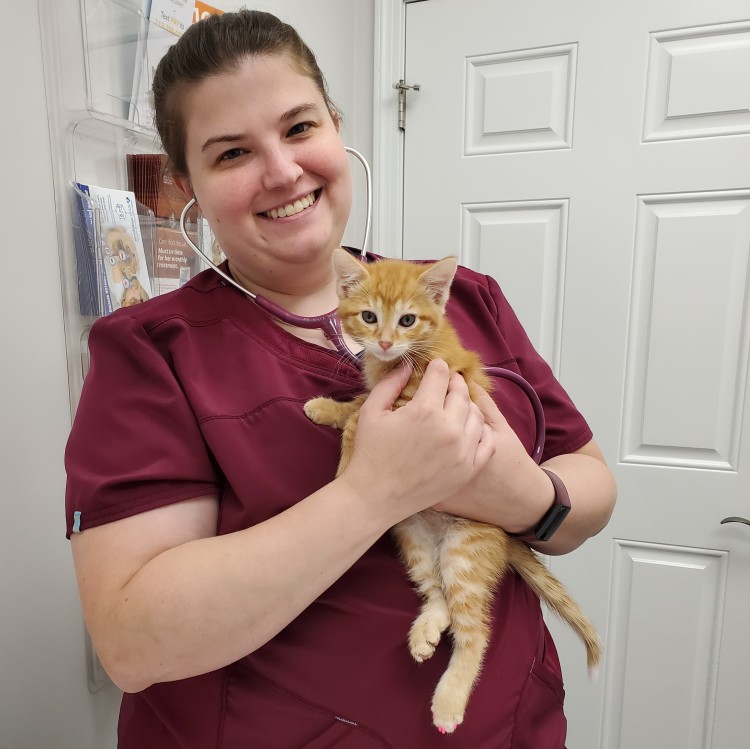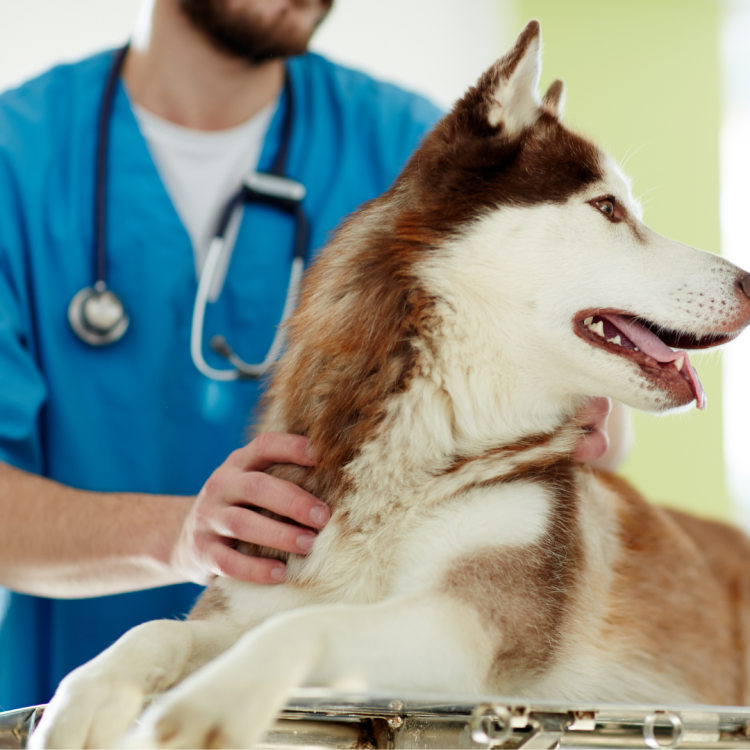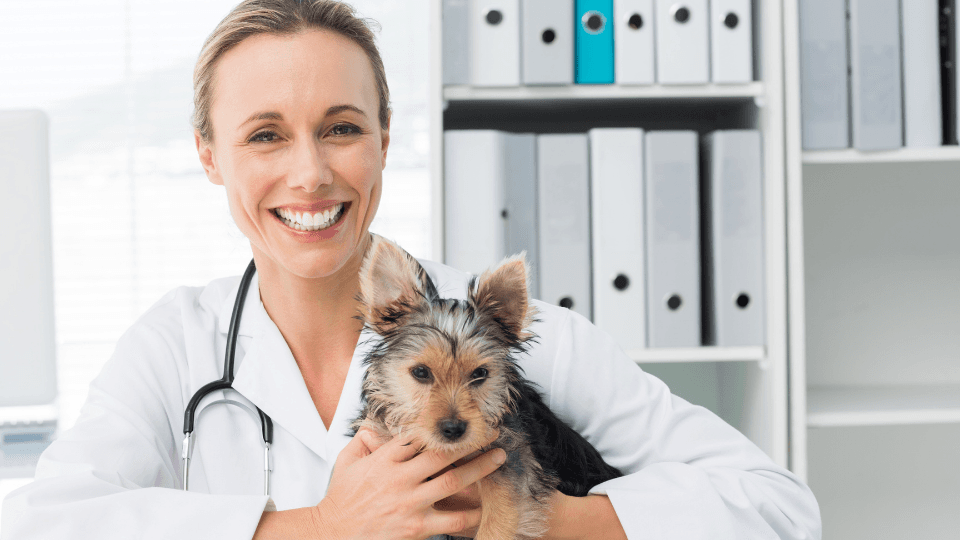One of the most rewarding parts of being a veterinarian is getting to know my clients, watching their pets grow, and establishing a relationship built on trust and mutual respect. At most clinics, the vets, technicians, and receptionists know the regular clients by name when they call the clinic or arrive for their appointments.
Taking the time to find a veterinarian while your pet is healthy can help them have the longest, healthiest life possible while reducing the stress you may experience if your pet becomes sick or injured. Here’s everything you need to know about primary vet care, including tips on how to find a veterinary doctor both you and your pet will love.
Table of Contents
- What is a general practitioner in veterinary medicine?
- If my pet is healthy, why do I need a vet now?
- How often should my healthy pet visit the vet?
- Should I still go to the vet if the visits stress my pet?
- How do I find a veterinarian near me?
- Now that I have a primary vet, how else can I reduce my pet's stress due to sickness or injury?
- Key Takeaways
What is a general practitioner of veterinary medicine?
Veterinary medicine is a unique medical profession in which general practitioners (GPs) can provide a large variety of services to their patients. In fact, your pet may only ever need to see a GP during his or her life.
Here are some of the common services your primary veterinarian may offer to your family pets:
- Preventative care, including wellness examinations, vaccination, parasite prevention, and screening for common parasites and diseases through fecal and blood testing
- Examination, diagnostics, and treatment for sick or injured pets
- Diagnosis and management of chronic diseases
- Routine surgeries such as spay and neuter
- Non-routine surgeries including lump removal, hernia repair, and more
- Dental cleaning and tooth extractions
- End-of-life care and euthanasia
Depending on staffing and hours at the clinic, some GP clinics also offer emergency medical care, emergency surgery, and hospitalization for sick pets.
In some cases, your GP may recommend you seek care with a veterinary specialist or at a dedicated emergency clinic for additional diagnostics and treatment. When your GP makes a recommendation like this, it’s because they want the very best for your pet and don’t feel equipped to offer everything your pet needs.
If my pet is healthy, why do I need a vet now?
The best time to find a veterinarian and establish a relationship is when your pet is healthy. Without a pressing medical concern, you don’t have to rush and can wait several days or weeks for an available appointment. The overall stress of the visit is lower for a healthy check-up, allowing you and your pet time to get to know the office, staff, and veterinarians in the clinic.
These visits also allow you to establish a veterinarian-client-patient relationship, or VCPR. In most states, this relationship is required for a veterinarian to give medical advice or treat your pet and must be established by an in-person examination. Once you have a VCPR, you can maintain it through annual exams. Without a VCPR, veterinarians and their staff cannot give specific medical advice for your pet over the phone.

Trust is an essential part of the veterinarian-client relationship, but it takes time to develop. It’s typically harder to build a trusting relationship with a veterinarian when you meet them in the middle of your pet’s health crisis. If they later become sick, you and your pet will likely be more comfortable in a familiar environment with staff who know you and your animal. By becoming familiar with your cat or dog in advance, the vet team can learn their behaviors and methods to reduce the emotional stress of a vet visit.
Additionally, routine check-ups allow you to discuss general concerns and ways to keep your pet as healthy as possible. Your veterinarian will learn what is normal for your pet, which can help them detect subtle changes more easily when your pet is sick. Over time, you will develop a relationship with your primary veterinarian’s office, giving you the ability to call for medical advice over the phone when necessary.
Finally, if you are purchasing a pet insurance policy for your pet, having records from routine visits will help to demonstrate that your pet was healthy when the policy was purchased. Some pet insurance policies require an examination at the start of coverage to rule out pre-existing conditions.
How often should my pet visit the vet?
The answer to this question will vary depending on your pet’s age and health status. Puppies and kittens will typically visit the veterinary office at least once per month until they are over four months of age to complete their initial series of vaccines.
Healthy adult pets should be examined by their veterinarian at least once a year for a physical examination, even if they are not due for vaccines. Adult pets with chronic medical issues, or those on daily medication, may need to see their vet more often.
Because our beloved pets age faster than we do, many primary care vets recommend more frequent check-ups as they get older. Cats are considered to be senior pets when they turn 10 years old, whereas dogs are considered seniors when they reach the final 25% of the expected lifespan for their breed.
Even if your pet appears healthy on the outside, dogs and cats are exceptionally good at hiding illness and pain. Subtle changes in weight, dental health, and mobility may go undetected by the people who see their pet every day. By tracking your pet’s examination notes, weight, and lab work over time, your veterinarian may diagnose chronic diseases before they make your pet sick.
Should I still go to the vet if the visits stress my pet?
Yes! Veterinarians and their team members know that vet visits can be stressful for both pets and owners, but these visits are still important to maintain your pet’s optimal well-being. The good news is that there are many ways to reduce the stress of vet visits for your pet and keep everyone safe. Your vet may recommend oral sedatives, such as trazodone for dogs or gabapentin for cats, prior to the visit. For very fearful pets, you could also consider finding a Fear Free clinic or using a house call veterinarian.

How do I find a veterinarian near me?
There are many ways to go about searching for a “veterinarian near me”. Recommendations from friends, family, and coworkers can give you an extra level of confidence in the veterinary office you choose, but many pet owners find their veterinarian by searching online. If you are moving to a new clinic, make sure to get a copy of your pet’s health records from your previous veterinarian to give to your new veterinarian.
No matter how you search for a veterinarian, here are some things to consider when deciding which veterinary clinic is a good fit for you and your pet:
- What are the clinic’s hours, and are there available appointment times that are convenient for your schedule?
- If your pet has special needs or specific medical conditions, does the clinic offer the services that your pet needs?
- How does the clinic handle emergencies, and how close is the nearest emergency veterinarian?
- After you’ve visited the clinic, decide if you are comfortable with the environment, staff members, and veterinarians. You and your pet should be comfortable and trust the team providing care in both times of health and sickness.
Now that I have a primary vet, what else can I do to reduce the stress if my pet becomes sick or injured?
Once you’ve established a relationship with a local veterinarian, you might want to purchase pet insurance to ease any worries you have about the financial aspect of caring for your pet. With pet insurance, you can be reimbursed for up to 100% of costs when your pet is sick or injured.
Because most pet insurance plans operate on a reimbursement system, you don’t have to worry about finding a veterinarian who “accepts” your insurance. You’ll pay the veterinarian at the time of the visit and receive reimbursement from the pet insurance company later. This means you can enjoy the peace of mind that comes from having both an established relationship with a veterinarian and a financial safety net without having to choose one or the other.
Key Takeaways
- General practice veterinarians do a little bit of everything and can treat both healthy and sick pets.
- The best time to establish a relationship with a veterinarian is when your pet is healthy.
- Young, healthy pets should visit the veterinarian at least once a year. Pets with chronic diseases and older pets should visit more often.
- Because pet insurance reimburses you for expenses incurred at the veterinary office, you don’t have to worry about finding a veterinarian who accepts your insurance.
